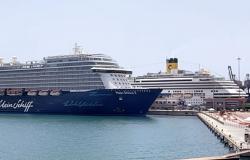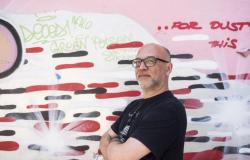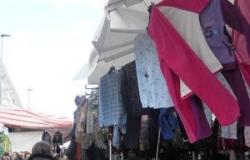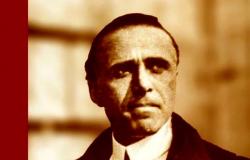
The eruption of Etna, a friend confesses to me and it seems to be dislocating, could not have happened more appropriately: in full season, with tourists descending on Sicily like flocks of migratory birds to also witness a phantasmagoric and unrepeatable regularly photographed and filmed, compensating for the damage caused to the crops by boosting the local economy, with great jubilation of the tourist companies. Almost, if we listen to his words, between the roars, the lava flows and the pebbles collected as souvenirs on the one hand, and the programs organized by the various tourism councilors in the area, on the other there was, one would say, even a sort of agreement: crowded hotels and guesthouses, bars taken by storm (the scorching air instinctively pushes us to find refreshment in drinks and ice creams). And our Vesuvius? Our Vesuvius has been sleeping since ’44: exactly thirty-five years. The friend who gave me this curious speech spoke about it with a bitter and ultimately jealous feeling of envy: the lack of tourist life in Naples (a city where foreigners now stop very little, and is becoming more and more simply a base for departure towards the coast, the islands or the archaeological areas) suddenly depends, for him, also on the absence of the plume of smoke, and in this regard he reminded me how a few years ago, among the electoral programs of one of our well-known political, there was what the rumor was repeated around without irony but on the contrary with the most unlimited and convinced seriousness) to overcome the lack of the plume of smoke by creating an artificial one: which one day would perhaps have been the usual gray paper that could be exchanged , if desired, also due to a tangle of clouds, and in the evening it would have been illuminated by red reflections, testifying to our perennial volcanic nature. Whether true or invented, my friend concluded, this rumor demonstrated one thing: how that politician had a profound and direct knowledge of the psychology of our people. I couldn’t blame him: I mean, to the friend.
With how many Neapolitans have I happened to mention, in the past few days, the eruption of Etna (which, up until now, does not have the intensity of the eruptions of past years and is only a normal seasonal outburst), nor I received words in response in which one could perceive the desire to reduce the scope of the phenomenon and, at the same time, a poorly simulated ability to establish a comparison with the Vesuvius eruptions and underline how these were more important and universally known, “historic”; and such a singular spirit of emulation seemed, more pathetically, a kind of alibi or safeguard, the need, in short, on an unconscious level, to still want to feel like the center of an interest, custodians of a primacy or It is a (historical) function which one feels one has irremediably abdicated.
I don’t know if these same motivations are at the basis of the simulated eruption experiments that are being carried out these days on Vesuvius where, using magnesium powder and other ingredients, and with the aid of powerful photoelectrics, fake tongues of fire rise at night . It is, in reality, a kind of dress rehearsal to reconstruct the eruption of nineteen centuries ago, the most famous and catastrophic of the eruptions in the history of the volcano, the one that buried Pompeii under the ash and fire, of which Pliny left testimony in a memorable letter, the anniversary of which falls in this month of August. Thus, to encourage the tourist currents stopping in the gulf resorts, and stimulate them to relaunch their interest in Vesuvius, the regional tourism department has organized this artificial eruption which will also be broadcast on television via Mondovision connection. I wonder through which ways, through which channels, the language comes to renew itself, or rather in what way neologisms and unusual expressions born in particular environments and borrowed from these make their way, suddenly becoming in daily use even among people who don’t care about it. it serves naturally and would on the contrary seem to be the furthest from being able to acquire, I will not say the meaning but certainly the use and evolution of such linguistic transformations.





